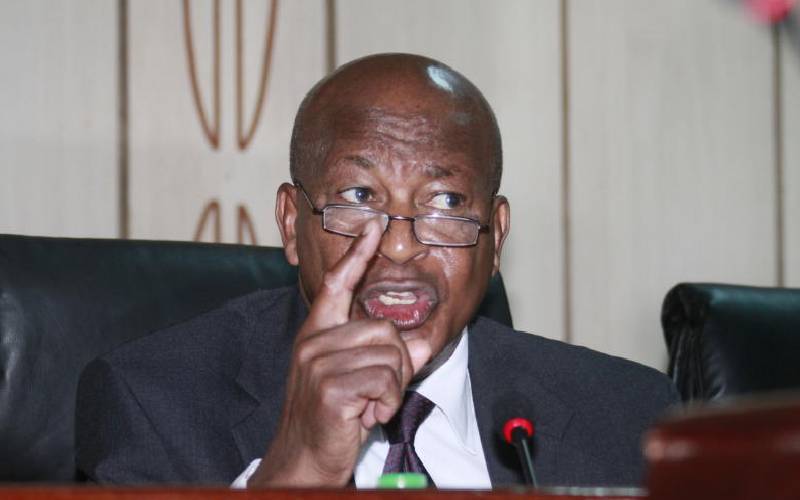×
The Standard e-Paper
Stay Informed, Even Offline

Attorney General Paul Kariuki when he appeared before the National Assembly Justice and Legal Affairs Committee at Parliament Buildings on 25/07/19. [Boniface Okendo, Standard]
Attorney General Paul Kariuki wants a case filed to stop the Building Bridges Initiative (BBI) campaigns dismissed.